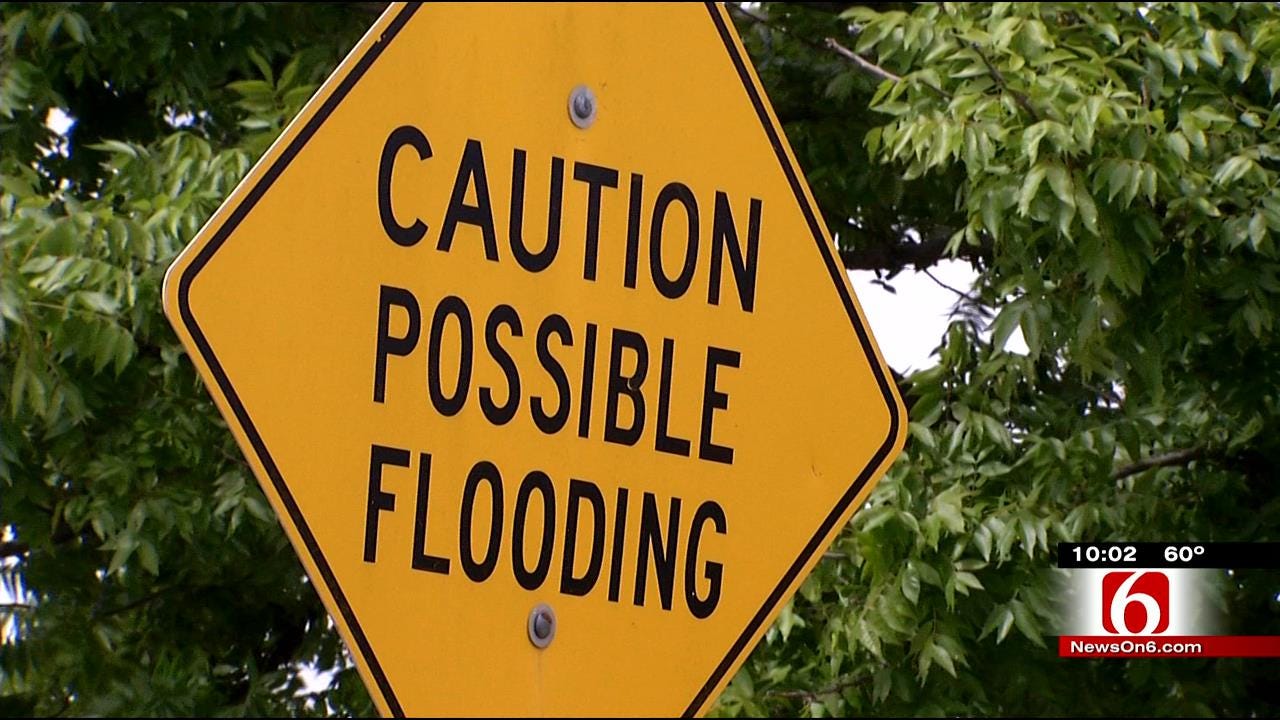City Of Tulsa Continues Precautions To Prevent Massive Flood Damage
Since a deadly Memorial Day flood 31 years ago, the city of Tulsa has become a model for flood control – buying hundreds of homes and knocking them down.Thursday, May 21st 2015, 11:24 pm
Since a deadly Memorial Day flood 31 years ago, the city of Tulsa has become a model for flood control – buying hundreds of homes and knocking them down.
There is also an extensive flood control network of channels and ponds giving water someplace to go besides inside houses.
But the city has a list of about 80 homes they would love to buy and turn the land into parks or soccer fields.
During the city's worst flood, what are now empty fields, were filled with homes. Now it's open space, but signs are still up to warn people about possible flooding.
Despite recent rain, creek levels are low, but water could rise quickly if the conditions were right.
During the Memorial Day flood of 1984, 15 inches of rain fell in eight hours.
Kirk Dale and his family were out of town when four feet of water poured inside his midtown home.
"I was rushing back to see if the cat was still alive. I didn't want my daughters to find them, who were young at the time. When I opened the door, it was solid mud everywhere," he said.
A branch of Joe Creek is underneath cement in Dale's backyard; 31 years ago it poured into the neighborhood.
"My neighbors took their kids into the attic and the water was rising so high they were getting worried. He told me he was getting ready to knock the roof out," Dale recalled.
Flood water damaged 6,000 homes and buildings and killed 14 people.
In the years since, Tulsa has become a model for flood control with its retention ponds and cement channels, and with the buyout of low-lying homes, turning the land they sat on into athletic fields and parks.
Stormwater Project Coordinator, Bill Robinson said, “You can still see some ponding and those areas will still flood, it's just they won't damage any structure because there is no structure there."
About 1,000 homes have been bought - many in the Mingo Valley - but there are 77 more the city wants to buy.
Even though many believe massive flooding is a thing of the past, Robinson said it's a threat that never goes away.
"There is a lot of people who think we have solved all of our flooding problems, ‘It doesn't flood in Tulsa anymore, we don't need to spend any money on stormwater.' You have to remember we have been in a drought and it seems this year we are coming out of it," he said.
Dale said, "It can always happen again, I'm sure, but it's not one of those things you can worry about."
The program is funded with federal grant money from FEMA.
About 18,000 homes are still inside the flood plain. You can see a map of those homes here.
More Like This
September 29th, 2024
September 17th, 2024
Top Headlines
December 12th, 2024
December 12th, 2024
December 12th, 2024
December 12th, 2024












